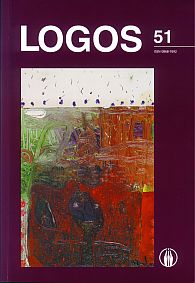DIALEKTIKA PLATONO IR KANTO FILOSOFIJOJE
Dialectics in Plato and Kant
Author(s): Tomas SauliusSubject(s): Philosophy
Published by: Visuomeninė organizacija »LOGOS«
Keywords: dialectics; sense perception; form; synthesis
Summary/Abstract: Plato defines dialectics as a method that enables us to reach the essence of each thing. Primarily, it can be done by the comprehension of something particular in virtue of a general idea. Kant states that even sense perception needs unifying forms. As he makes clear in Critique of Pure Reason, no act of comprehension can be derived solely from the subject matter which is comprehended (empiricists insisted on such a derivation). We can draw a parallel between Kant's fundamental distinction "matter versus form" and Plato's oposition "sensable things versus intelligible ideas". One of the last-mentioned is the first step in dialectics. So we have grounds to view Kant's "copernical turn" as a case of the application of the Platonic dialectical method.
Journal: LOGOS - A Journal of Religion, Philosophy, Comparative Cultural Studies and Art
- Issue Year: 2007
- Issue No: 51
- Page Range: 183-189
- Page Count: 7
- Language: Lithuanian

